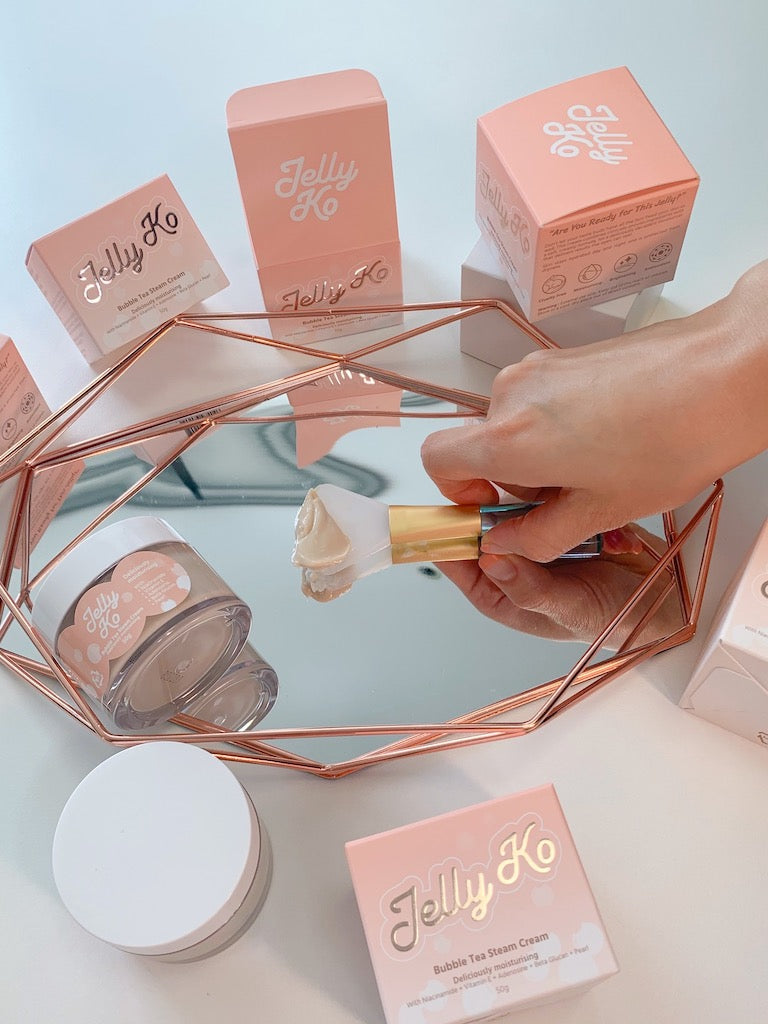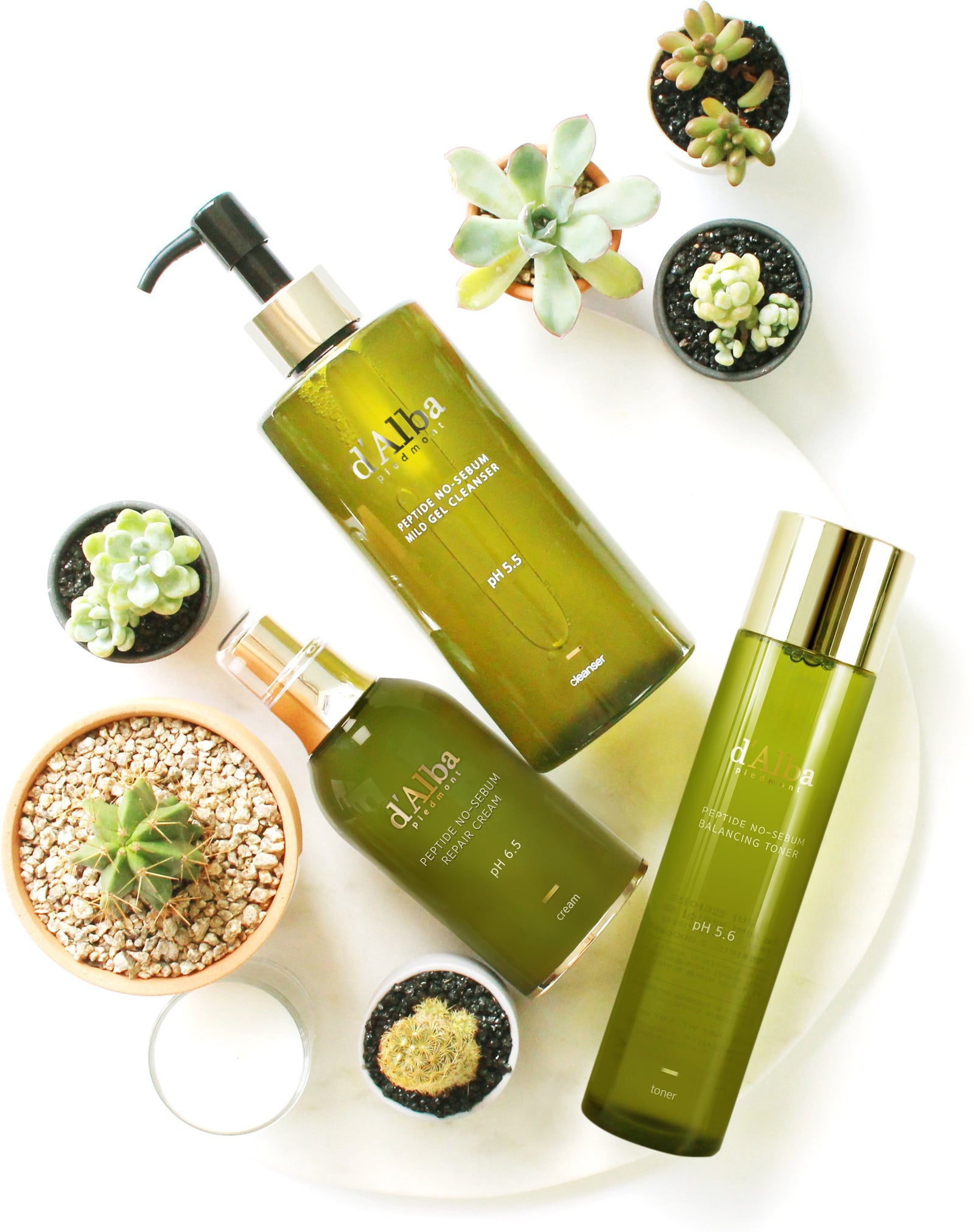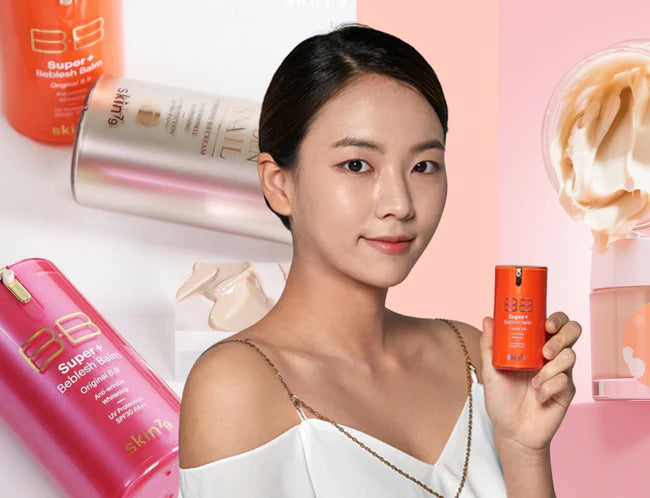The Korean Beauty Show 🎧 Your K-Beauty audio library starts here →
Menu
Retinol in K-Beauty
December 07, 2024

Retinol in K-Beauty
In Western skincare, retinol is the holy grail of skincare ingredients. Praised by the likes of Vogue, Elle and even Sex and The City, retinol promises to rewind the clock and restore your skin's youthful glory. So, if such a unicorn product exists, why has it only found its way into the heart of K Beauty in 2024?
There are a few reasons but first let us talk about what Retinol is and how it works.
What is Retinol?
Retinol is a powerhouse ingredient that can transform your skin texture - from acne scarring, pigmentation, to fine lines and signs of ageing.
Belonging to the Vitamin A-family, retinols go further than simply the top layer of the skin (the epidermis). They actually penetrate to the dermis beneath.
Once they are in the ‘middle layer’ of your skin, the molecules boost the production of elastin and collagen. This leaves you with plumper, younger looking skin.
Retinol is also useful in the treatment of acne because it reduces sebum production. It thins the top layer of the skin while at the same time thickening the dermis. Retinols promote blood vessel formation, as well as unclogging your pores. For this reason, many say it is a life saver for acne scarring and fine lines.
Another well known benefit is that it stimulates faster cell turnover which increases collages.
If you’re thinking “Ok this product sounds amazing what’s your problem!??!!?” then bear with us.
While retinol does have amazing properties and can be an incredibly beneficial, like most good things, it’s not without side effects.

The Flip Side of Using Retinol
Retinol can take up to 6 weeks to start working and in that period the skin can become dry, flaky, and sensitive as it acclimatises to the product.
Sensitivity
The skin should settle once it gets used to the retinol, however those with sensitive skin may find it difficult to reach this period. If you develop serious side effects like a constant burning sensation, you may want to consult a dermatologist.
Sunburn
Another thing to watch out for when using retinol is sunburn. Retinol is a mild inhibitor of tyrosinase. This means it increases the photosensitivity of your skin and heightens the risk of sunburn and hyperpigmentation. This is especially so during summer. If you don't wear sunscreen or don't remember to regularly apply it, using retinol is not a good fit for you.
Australians are already at high risk of skin cancers and melanomas due to our harsh sun and proximity to the hole in the ozone layer, so this is definitely something to watch out for. If you work outdoors or like spending time in the sun, it's best to skip the retinols altogether as you could risk damaging your skin.
Dryness & Flaking
Retinol can also dry out your skin causing flakiness and dry patches. Unfortunately for some people, it can be very hard to get out of this cycle of flakiness, particularly if they are already prone to dryness or sensitivity.
A No-Go for Pregnancy & Breastfeeding
Retinol is not recommended for women who are pregnant or breastfeeding because it may increase the risk of birth defects and miscarriages. There has been some links to long-term carcinogenic effects however more studies are needed to form conclusive evidence.
A No-Go for Eczema & Dermatitis
Finally, retinol and eczema are not friends. If you have eczema or dermatitis, it is best to avoid using retinols. Instead, opt for gentler ingredients, which we'll discuss below.

So, why hasn’t K Beauty embraced retinol until now?
In addition to all of those side effects mentioned above, the main reason that Koreans haven't embraced retinols is because K-Beauty focusses on a gentler approach to skin care.
Koreans take a preventative approach to skin care from an early age. They view ingredients like retinol as ‘harsher’ and therefore a ‘last resort option’ against anti-ageing.
The multi-step method that K Beauty is famed for gently cares for the skin at every level to ensure adequate cleansing, toning, ph balance and moisture levels.
Koreans prioritise consistency in their skincare and achieving desired results over time rather than intense and dramatic ‘reversal’ results. They also focus on products that calm and soothe the skin rather than products that are harsh and drying.
Korean skincare is full of gentle ingredients like galactomyces, niacinamide, snail mucin, glutathione and liquorice root extract, all of which are known for their anti-ageing properties. However, unlike retinol these are gentle on the skin and fine for those with sensitive skin.
Ultimately, one of the biggest factors is that Koreans are heavily focussed on prevention and start looking after their skin at a much younger age. Westerners can often neglect their skin or partake in activities that promote premature aging (ahem, suntanning) and then resort to drastic measures to improve the damage later in life.
Another simple reason is that a trip to the dermatologist is far cheaper and more accessible in Korea than in Western countries. Whereas an appointment with a dermatologist will set you back about $300 dollars in Australia and is often seen as a last resort for those with serious skin issues, in Korea, people regularly visit a specialist to discuss their skincare. It's not uncommon for people to make fortnightly trips to an aesthetician for non-invasive skin management as well.

Retinol Products That Are Available in K-Beauty
With all of this said, retinol is fast becoming one of the hottest trending ingredients in K-Beauty in 2024.
However, what you will find is that the types of formulas in Korea are far less drying and harsh on the skin than their Western counterparts.
Take Jelly Ko Be Jelly Overnight Dream Serum and refill. This is a great option if you are looking to introduce a Vitamin A product into your nightly routine. It's perfect for drier and mature skin types because it also incorporates collage, 4 types of hyaluronic acid, probiotics and licorice. The rich texture offers loads of additional hydration so that skin won't dry out. It also works to firm, plump and brighten the overall texture of your skin.
Got Questions About Retinols In Your Routine?
If you have any more questions about retinol or anti-ageing skincare then please reach out to us! We love chatting all things skincare and can even assist you with creating the perfect routine for your skin.
STYLE STORY - Your Go To For K-Beauty Since 2014
Shop Now
"Koreans focus on proper and preventative skin care from an early age and view ingredients like retinol as a ‘harsher’ and ‘last resort option’ against anti-ageing."
- STYLE STORY K-Beauty



Leave a comment
Comments will be approved before showing up.